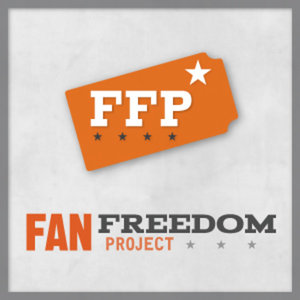
 Opposing forces are battling it out over the Fairness in Ticketing Act. A joint committee comprised of Tennessee state House and Senate members will hear arguments about the bill (HB 3437/SB 3441) tomorrow, Tuesday, Nov. 13 at Legislative Plaza in Nashville. The Fairness in Ticketing Act will be filed in the 2013 session of the Tennessee General Assembly.
Opposing forces are battling it out over the Fairness in Ticketing Act. A joint committee comprised of Tennessee state House and Senate members will hear arguments about the bill (HB 3437/SB 3441) tomorrow, Tuesday, Nov. 13 at Legislative Plaza in Nashville. The Fairness in Ticketing Act will be filed in the 2013 session of the Tennessee General Assembly.
Basically, it’s a fight between competitors AEG and Live Nation and their affiliated ticketing services.
On the Live Nation side: Live Nation owns primary ticketing agency Ticketmaster, and secondary ticketing service TicketsNow. Supporting the legislation in Tennessee and other states is the Fans First Coalition. In Tennessee this has taken the form of the Tennessee Sports & Entertainment Industry Coalition (TSEIC), a powerhouse group comprised of Nashville’s major venues (Bridgestone Arena, Ryman Auditorium, Grand Ole Opry, LP Field), big industry players (CAA, CMA) and dozens of major artists including Garth Brooks and Kenny Chesney. Many of these parties have exclusive agreements with Ticketmaster and/or its parent company Live Nation.

On the AEG side: eBay owns secondary ticketing outfit StubHub, which beginning next year will be exclusively used by AEG venues and its primary ticketing service AXS (as announced today). Opposing the Fairness in Ticketing Act, and similar legislation nationwide is the Fan Freedom Project, a group initially funded by StubHub. This organization wants “comprehensive reform [that] would create as much transparency in the primary market as it does in the secondary market.” The Fan Freedom Project claims the bill is designed to force fans to resell through Ticketmaster’s TicketsNow site.
For the most part, both groups have similar complaints about current ticketing practices, listed below. However, they disagree about whether the Fairness in Ticketing Act is the best way to resolve these issues.
Holdbacks: Large numbers of tickets are held back by artists, venues, etc. This number is hidden from members of the public, who do not know how many tickets are actually available to them.
Scalpers/resellers: Currently, scalpers can purchase hundreds of tickets and resell them at an inflated price. Even if the scalper never actually receives the tickets, he/she has prevented average consumers from buying those seats during the initial on-sale. Also, scalpers sell fake tickets for an event even before real tickets go on sale. Many ticket resellers do not disclose whether they have the tickets in hand, the face-value price, seat locations, or that they are a ticket reseller. Additionally, scalpers use websites that masquerade as being affiliated with venues, sports teams, or recording artists to mislead fans into purchasing tickets on the resale market (ex. bridgestone.nashvillearena.org).
Paperless Ticketing: The bill proposes paperless ticketing as a way to fend off scalpers and overpriced resellers, but the Fan Freedom Project says that takes control out of fans’ hands because it will “eliminate or severely restrict our choices of how we can buy, share or resell event tickets.”

About the Author
Sarah Skates has worked in the music business for more than a decade and is a longtime contributor to MusicRow.View Author Profile


